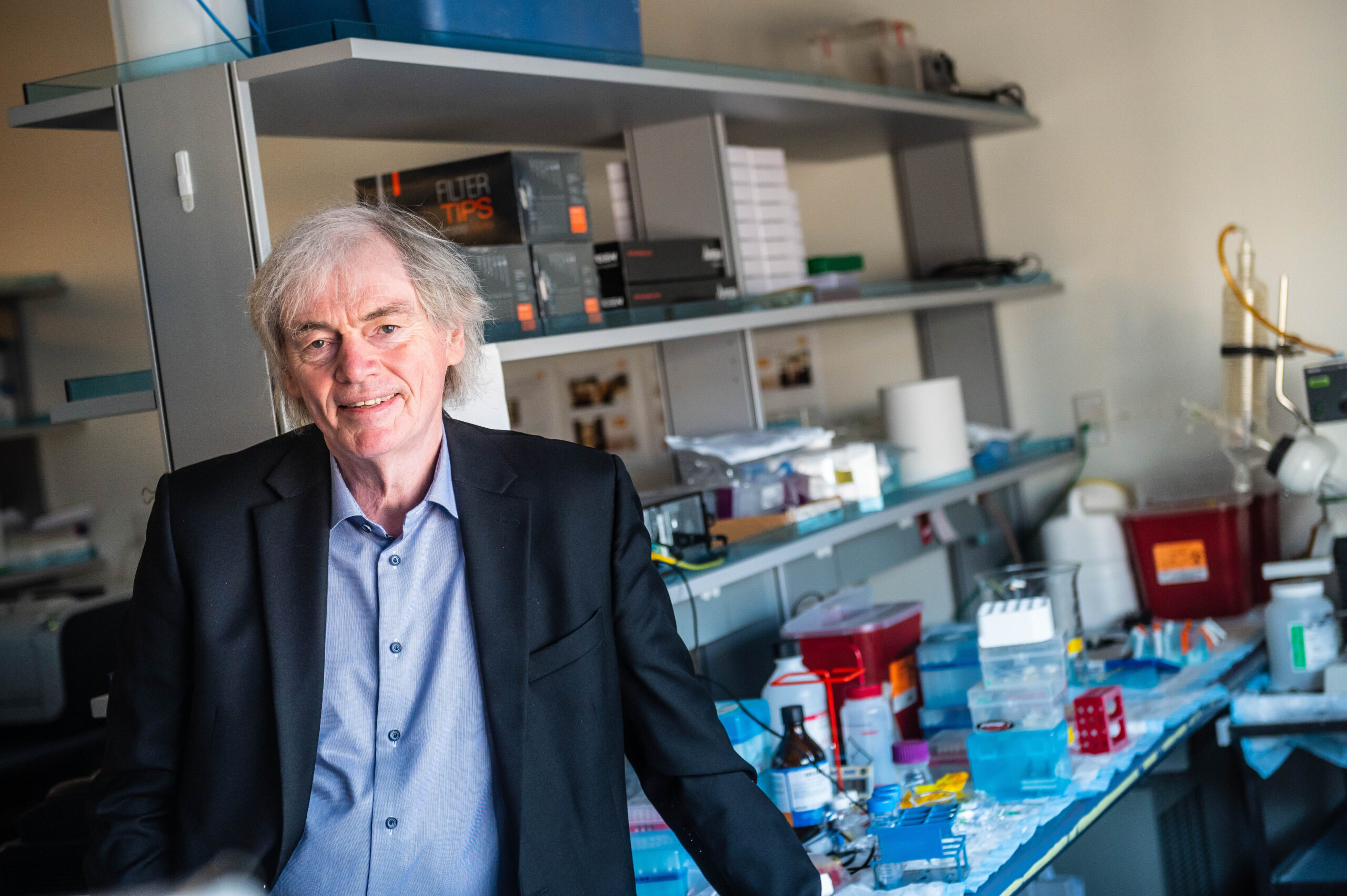Dr. Pieter Cullis named 2022 Canada Gairdner Award laureate
UBC professor Dr. Pieter Cullis has been named a 2022 Canada Gairdner International Award laureate for his pioneering work developing the lipid nanoparticle delivery technology that enables mRNA therapeutics such as the highly effective COVID-19 mRNA vaccines.

Dr. Pieter Cullis has been named a 2022 Canada Gairdner International Award laureate.
Award recognizes contributions to foundational technologies for the COVID-19 mRNA vaccines
UBC professor Dr. Pieter Cullis has been named a 2022 Canada Gairdner International Award laureate for his pioneering work developing the lipid nanoparticle delivery technology that enables mRNA therapeutics such as the highly effective COVID-19 mRNA vaccines.
The Gairdner Awards recognize scientists whose discoveries have had a major impact on biomedical and global health research. Nicknamed Canada’s Nobel Prize, many of the annual Canada Gairdner Award laureates have gone on to receive the Nobel Prize.
“The work of Dr. Cullis and his esteemed colleagues enabled the rapid availability of highly effective and safe COVID-19 mRNA vaccines, which has been instrumental in protecting individuals during the pandemic,” says UBC President and Vice-Chancellor Santa J. Ono. “We are extremely proud of Dr. Cullis’ enormous contributions to biomedical and global health research and congratulate him on this well-deserved honour.”
Dr. Cullis was recognized alongside Dr. Katalin Karikó, senior vice president of RNA Protein Replacement Therapies at BioNTech SE and a professor at the University of Szeged and Dr. Drew Weissman, director of the Penn Institute for RNA Innovation at the University of Pennsylvania for their joint contributions to developing nucleoside-modified mRNA to avoid immunogenic reactions and improve the translational properties of mRNA once inside a cell.
The foundation of COVID-19 mRNA vaccines
The COVID-19 mRNA vaccines developed by Pfizer/BioNTech and Moderna are built on over 30 years of established scientific research, including work carried out by Drs. Cullis, Karikó and Weissman. Drs. Karikó and Weissman discovered how to engineer mRNA—a molecule that carries instructions for making proteins—so that it could be used to produce the desired protein after introduction into human cells. Despite challenges and skepticism from others in the process, they saw the potential of RNA for vaccines and other applications. However, one major challenge remained: how to introduce the mRNA into the body in a way that it would be protected from degradation and could enter cells for protein production.
A pioneer in lipid chemistry and the formation of lipid nanoparticles, Dr. Cullis had been working with such packaging systems for the past 50 years. His foundational work has led to many clinical applications of lipid nanoparticles, such as delivering anticancer drugs to cancer tissues while limiting toxicity in normal tissues. In the case of mRNA, the lipid nanoparticles are designed to form a protective bubble around the mRNA and enable delivery to the interior of target cells. This technology is critical to the potency of mRNA vaccines.
The success of the mRNA vaccines for COVID-19 suggest paths forward for similar vaccines for viral threats like influenza or HIV. Clinical trials are already underway to test mRNA vaccines to prevent infections caused by Zika virus, chikungunya and rabies infections.
‘Great research is a collective effort’
“It is an incredible honour to receive the Canada Gairdner International award,” says Dr. Cullis. “I am particularly honoured to receive it together with Drew Weissman and Katalin Karikó, who have done so much to make mRNA therapeutics a reality.”
Dr. Cullis also thanked his colleagues Dr. Thomas Madden and Dr. Michael Hope. The groundwork for their lipid nanoparticle drug delivery technology was laid over 40 years ago, when Drs. Cullis, Madden and Hope, together with other UBC colleagues, began their work on developing delivery systems for small molecule drugs used for chemotherapy. In 2009, they went on to launch UBC spin-off company Acuitas Therapeutics, now a highly successful biotech company based at UBC.
“Great research is a collective effort,” says Dr. Cullis. “I would be remiss if I did not acknowledge the efforts of literally hundreds of people have helped make the COVID-19 mRNA vaccines possible. To have been part of this story is truly unbelievable and is a great example of how basic research is so essential to achieve new medicines that change the world.”



